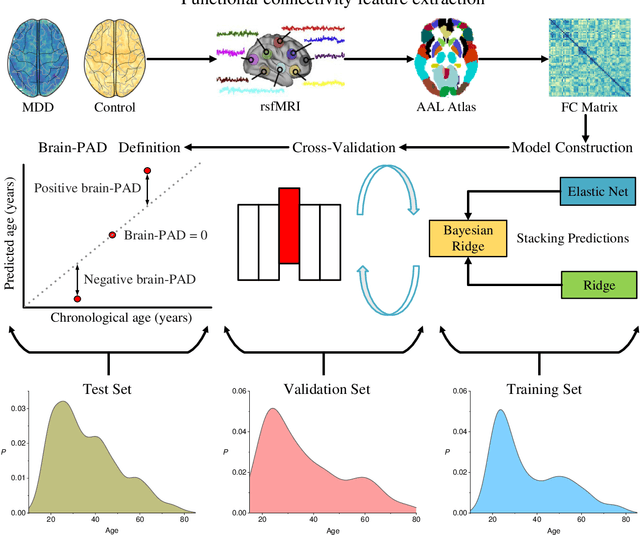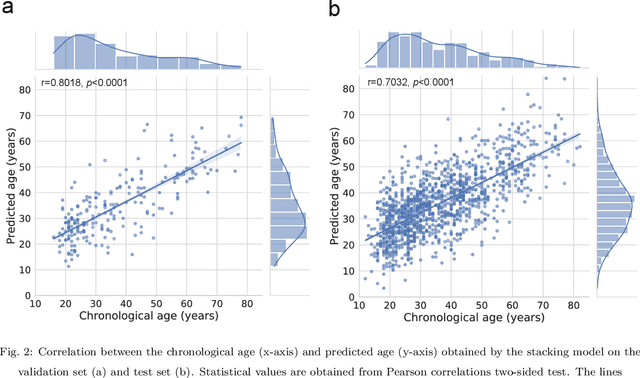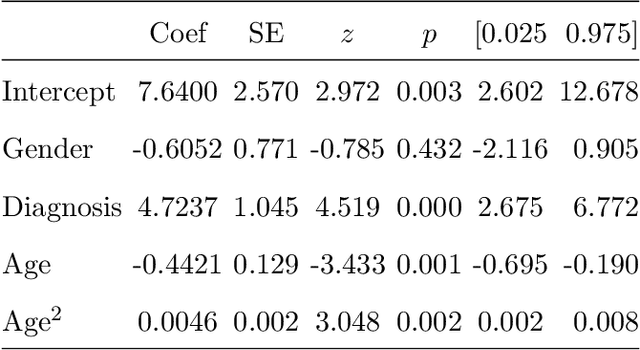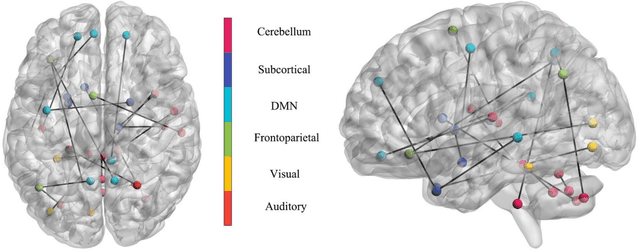Jiang Qiu
Multi-feature concatenation and multi-classifier stacking: an interpretable and generalizable machine learning method for MDD discrimination with rsfMRI
Aug 18, 2023Abstract:Major depressive disorder is a serious and heterogeneous psychiatric disorder that needs accurate diagnosis. Resting-state functional MRI (rsfMRI), which captures multiple perspectives on brain structure, function, and connectivity, is increasingly applied in the diagnosis and pathological research of mental diseases. Different machine learning algorithms are then developed to exploit the rich information in rsfMRI and discriminate MDD patients from normal controls. Despite recent advances reported, the discrimination accuracy has room for further improvement. The generalizability and interpretability of the method are not sufficiently addressed either. Here, we propose a machine learning method (MFMC) for MDD discrimination by concatenating multiple features and stacking multiple classifiers. MFMC is tested on the REST-meta-MDD data set that contains 2428 subjects collected from 25 different sites. MFMC yields 96.9% MDD discrimination accuracy, demonstrating a significant improvement over existing methods. In addition, the generalizability of MFMC is validated by the good performance when the training and testing subjects are from independent sites. The use of XGBoost as the meta classifier allows us to probe the decision process of MFMC. We identify 13 feature values related to 9 brain regions including the posterior cingulate gyrus, superior frontal gyrus orbital part, and angular gyrus, which contribute most to the classification and also demonstrate significant differences at the group level. The use of these 13 feature values alone can reach 87% of MFMC's full performance when taking all feature values. These features may serve as clinically useful diagnostic and prognostic biomarkers for mental disorders in the future.
Accelerated functional brain aging in major depressive disorder: evidence from a large scale fMRI analysis of Chinese participants
May 08, 2022



Abstract:Major depressive disorder (MDD) is one of the most common mental health conditions that has been intensively investigated for its association with brain atrophy and mortality. Recent studies reveal that the deviation between the predicted and the chronological age can be a marker of accelerated brain aging to characterize MDD. However, current conclusions are usually drawn based on structural MRI information collected from Caucasian participants. The universality of this biomarker needs to be further validated by subjects with different ethnic/racial backgrounds and by different types of data. Here we make use of the REST-meta-MDD, a large scale resting-state fMRI dataset collected from multiple cohort participants in China. We develop a stacking machine learning model based on 1101 healthy controls, which estimates a subject's chronological age from fMRI with promising accuracy. The trained model is then applied to 1276 MDD patients from 24 sites. We observe that MDD patients exhibit a $+4.43$ years ($\text{$p$} < 0.0001$, $\text{Cohen's $d$} = 0.35$, $\text{95\% CI}:1.86 - 3.91$) higher brain-predicted age difference (brain-PAD) compared to controls. In the MDD subgroup, we observe a statistically significant $+2.09$ years ($\text{$p$} < 0.05$, $\text{Cohen's $d$} = 0.134483$) brain-PAD in antidepressant users compared to medication-free patients. The statistical relationship observed is further checked by three different machine learning algorithms. The positive brain-PAD observed in participants in China confirms the presence of accelerated brain aging in MDD patients. The utilization of functional brain connectivity for age estimation verifies existing findings from a new dimension.
 Add to Chrome
Add to Chrome Add to Firefox
Add to Firefox Add to Edge
Add to Edge